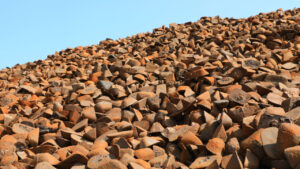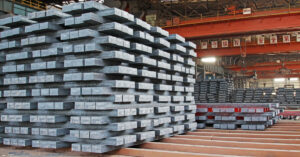
Successful exports of Ukrainian grain under the Black Sea Grain Initiative have helped to reduce world prices and strengthen food security, according to a report published on Twitter by the Ministry of Defense of the United Kingdom of Great Britain and Northern Ireland on Friday.
“During this initiative, more than 32 million tons of food entered the world market, and the food price index fell by 23% compared to its peak in March 2022. Developing countries have particularly benefited from lower prices, as well as from direct grain imports from Ukraine,” the statement said.
At the same time, Russia’s withdrawal from the Black Sea Grain Initiative has led to a reduction in exports from Ukraine, which, according to British intelligence, “is a clear attempt to degrade the Ukrainian economy and its ability to maintain its military capabilities.”
The report emphasizes that the agricultural sector accounted for 40% of Ukraine’s exports before the war and remains vital to the country’s economy. In total, food exports from Ukraine amounted to $28 billion in 2021.
“Ukraine has succeeded in using alternative methods of grain exports, such as river, rail, and road transport; however, it is unlikely that this will match the capacity of the Black Sea export routes,” the British intelligence service said.

In July 2023, the Export Credit Agency (ECA) set a new milestone in supporting Ukrainian exporters by insuring their obligations under loans issued for the execution of foreign economic contracts totaling UAH 1.035 billion. According to the ECA website, the amount of financing provided amounted to UAH 85.9 million.
Among the insured loans in July 2023, almost UAH 80 million were portfolio loans. The largest of them were issued in Kyiv (UAH 20 million), Ivano-Frankivsk (UAH 19.9 million), and Dnipro (UAH 19.4 million) regions.
It is also noted that as of August 1, 2023, the ECA supported exports of more than UAH 6.2 billion by insuring loan agreements in the amount of UAH 815.4 million.
The leaders in terms of the amount of insured loans are Oschadbank (UAH 256.3 million), Ukrgasbank (UAH 229 million) and Raiffeisen Bank (UAH 210 million). They are also the first in terms of the volume of supported exports (UAH 3.22 billion, UAH 1.51 billion and UAH 0.6 billion, respectively).
PJSC Export Credit Agency is a government-authorized agency that supports and promotes the export of Ukrainian goods (works, services). The ECA protects Ukrainian exporters from the risk of non-payment and financial losses associated with the fulfillment of foreign trade contracts.

Ukraine in January-July of this year increased exports of pig iron in physical terms by 16.6% compared to the same period last year – up to 906.423 thousand tons.
According to statistics released by the State Customs Service (SCS), for the period exports of pig iron in monetary terms amounted to $346.880 million (down 18.1%).
At the same time, exports were mainly to Poland (63.56% of shipments in monetary terms), Spain (19.87%) and the Czech Republic (7.24%).
For seven months of 2023 Ukraine imported 37 tons of pig iron for $52 thousand from Germany (61.54%) and Brazil (38.46%), with no imports in June and July.
As reported, Ukraine in 2022 reduced exports of pig iron in physical terms by 59% year-on-year to 1 million 325.275 thousand tons, in monetary terms by 61.1% to $638.774 million.
In 2022, Ukraine imported 40 tons of pig iron worth $23 thousand, while in 2021 – 185 tons of pig iron worth $226 thousand.
Exports were mainly to the USA (38.47% of shipments in monetary terms), Poland (32.91%) and Turkey (8.12%), imports – from Germany (100%).

Ukraine in January-July this year reduced exports of semi-finished carbon steel products in physical terms by 76.4% compared to the same period last year – to 658.729 thousand tons.
According to statistics released by the State Customs Service (SCS), in monetary terms, exports of semi-finished carbon steel products for this period amounted to $354.178 million (down 62.9%).
The main exports were to Bulgaria (33.71% of shipments in monetary terms), Poland (31.62%) and Turkey (7.45%).
In January-July Ukraine imported from China 92 tons of semi-finished products worth $169 thousand.
As reported, in 2022 Ukraine in physical terms reduced exports of semi-finished carbon steel products by 72% in comparison with the previous year – to 1 million 899.729 thousand tons, in monetary terms by 70.9% – to $1 billion 191.279 million. The main exports were to Bulgaria (26.55% of supplies in monetary terms), Poland (13.97%) and Italy (12.13%).
In addition, Ukraine imported 5.558 thousand tons of similar products in 2022, which is 85.7% less than in 2021. In monetary terms, imports decreased by 86% to $3.634 mln. Imports were made from Russia (96.92% of supplies – before the war), China (1.84%) and Romania (1.21%).